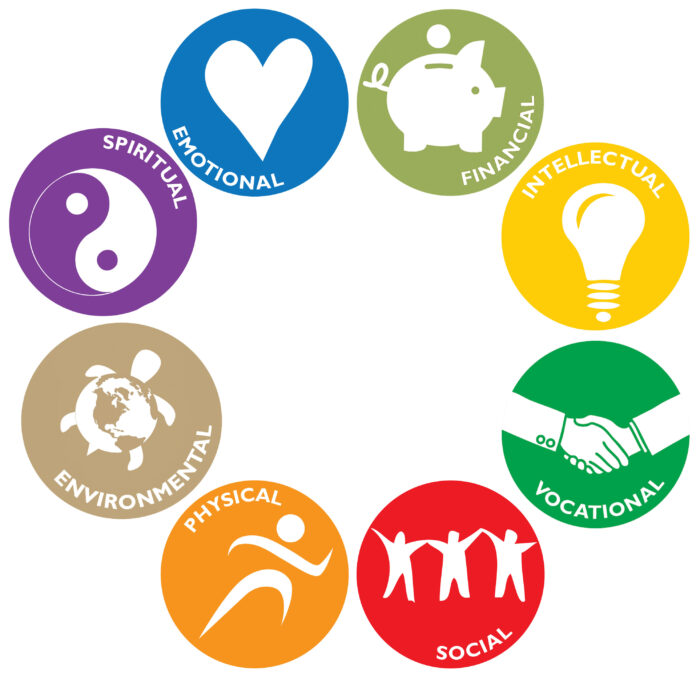Healthy Habits and the Dimensions of Wellness
Healthy habits are an important part of your journey to wellness. Whether you are looking to develop resiliency, build self-awareness, or reduce stress, this article will help you develop healthy habits. It also explains the importance of balancing each dimension. You will discover that the dimensions are interconnected and can all be changed together. In fact, a healthy lifestyle involves a holistic approach, so it is essential to find a balance among each dimension.
Developing healthy habits in each dimension of wellness
Health is a complex concept. A healthy life is not a simple matter of exercise, eating right, and getting enough sleep. There are many different dimensions of wellness, and neglect of any one will compromise the rest. Developing healthy habits in each dimension of wellness can help you achieve optimum physical health and promote longevity. It is important to balance the activities you enjoy with your daily needs. Learning to pay attention to your body’s signals and responding to it is an essential part of wellness.
Developing healthy habits in each dimension of wellness can be a challenge, especially if you are living alone. However, there are many strategies for keeping healthy. One technique is journaling, which helps you track your progress and develop strategies for success. Developing healthy habits helps prevent illness and reduce the risk of depression. By learning more about your wellness, you can take action to maintain it and make it a priority.
There are eight dimensions of wellness that affect your life. Each dimension has its own unique set of influences and needs, and ignoring one may create a domino effect. The goal is to achieve personal harmony within each dimension, not perfect balance. However, you should not try to reach the perfect balance of all eight dimensions at once. Each step you take in developing healthy habits in one dimension can elevate your wellness in the other.
The social dimension of wellness emphasizes connections with others. Healthy relationships with friends and family, healthy work-life balance, and involvement in the community are all important aspects of social wellness. In addition, people should treat others with respect and honor their differences. Developing healthy habits in each dimension of wellness will benefit you both physically and mentally. It will also promote a positive outlook and enhance your social connections. If you have an active social life, you will be happier and less stressed than if you’re isolated.
Building resiliency

Developing resilience is an important part of wellness. However, it requires intentionality. In order to increase your resilience, you need to focus on four core components: wellness, meaning, connection, and healthy thinking. Developing resilience is a process that builds as you experience stress and other stresses in your life. In addition, it is important to prioritize relationships, which can increase your resiliency. Finding people who can validate your feelings is important.
To build up your resilience, start by identifying what your strengths and resources are. This way, you can start investing in these skills. Creating a sense of purpose is one of the biggest motivators. Investing in your community is also an important way to create positive reciprocal relationships. These characteristics help you deal with stress and adversity better. The 7 Cs of resilience can be illustrated by using the concepts of purposeful peer support and 12 positive psychology strategies.
The next step is to connect with friends and family on a regular basis. This will allow you to recognize the feelings you are experiencing and build your resilience. You can also engage in spiritual practices. For example, you can meditate or practice mindfulness. Both of these activities will help you deal with stressful situations and build your resilience. For those who are worried about the impact of trauma, resiliency can help you overcome the adversity.
Faculty need training about the concepts of wellness and the practical skills to implement them. This workshop will help them get a basic understanding of how wellness works and how to implement it in the workplace. This will help them learn to use a self-management strategy and to develop their resilience. The workshop will also help them to identify one habit that they can incorporate into their everyday lives to help them develop a resilient mindset.
Developing body awareness
Developing body awareness as a dimension of wellbeing can be beneficial to many people. It involves listening to the body and recognizing signs of illness. It also includes understanding and balancing the daily activities and needs of one’s life. Physical activity should balance the needs of the body with the demands of daily life. It can help a person stay physically healthy and allow the rest of the dimensions of wellness to flourish.
The eight dimensions of wellness are interrelated and affect each other. They are equally important for achieving optimal wellness. The first dimension, physical wellness, is concerned with the importance of regular exercise and a healthy diet. The second dimension, emotional wellness, is concerned with understanding one’s emotions. An awareness of one’s own emotions, including the ability to manage them, and recognizing signs of stress is key to maintaining emotional wellness. The fourth dimension, occupational wellness, relates to the development of inner resources and creating a harmonious work/life balance.
Developing body awareness as a dimension of wellbeing can be challenging and difficult at times. However, it is important to understand that it is a lifetime process. If you can maintain awareness of your own body, you can improve your health and the health of others around you. Developing body awareness as a dimension of wellness is the gateway to changing yourself and improving your lifestyle. It can lead to a longer and healthier life. As a result, it can also help with the recovery of injury, illness, or addiction.
Developing self-awareness
Developing self-awareness is an important skill that helps you become a better person, and it can also help you in your therapeutic relationships with others. By developing self-awareness, you can make better decisions and be more effective in helping others. Self-awareness can be a powerful tool for improving your personal relationships and overall health. It helps you become more aware of your own personality traits and strengths.
The process of developing wellness involves a dynamic process of growth and change. The 8 dimensions of wellness are not mutually exclusive, but rather interdependent, and are all vital to our overall health and well-being. When we consider them in this way, we’ll have a better idea of how to develop each one and find the right balance to suit our unique personalities. The goal is to develop a sense of self-awareness that can make us feel better and be better in all aspects of our lives.
In addition to cultivating self-awareness, we must also consider our physical and social well-being. The physical dimension of wellness includes eating nutritiously and getting adequate sleep. Physical wellness also helps us maintain a healthy body weight and prevent chronic disease. Social wellness focuses on being in the social world, building a supportive network, and being in close relationships with romantic partners. These aspects of wellness contribute to our overall well-being and help us perform daily activities.
Mental wellness is a dimension of wellness that focuses on a person’s ability to think and make decisions. It includes productive thinking, the desire to learn, and a reliable memory. Mental health is an important component of physical wellness and is closely related to emotional wellbeing. It also includes environmental wellbeing. The environment is a vital part of your life, and cultivating self-awareness is an essential part of being healthy.
Developing spirituality
The importance of a spiritual dimension to wellness cannot be understated. When we think of spiritual wellness, we typically think of the idea of seeking meaning and purpose in our lives. The definition of spirituality varies, but the core principles are universal. For example, people can gain spirituality through personal relationships and by experiencing peace and tranquility in nature. The ability to cultivate spirituality helps individuals cope with stressful situations in life.
In a broader sense, spirituality refers to searching for meaning in life, transcending the physical world, and connecting with others. Traditionally, spirituality has been rooted in religion. It involves a belief in a higher power, core beliefs, rituals, and community. However, increasing numbers of Americans identify themselves as “none” and are not affiliated with a particular faith or spiritual group.
Meditation can help you achieve a more positive mental state. Meditation helps you focus on a more positive thought and is a wonderful way to relieve emotional strains. It can also reduce fatigue and insomnia. In addition, it promotes physical health. If you do yoga regularly, you will be connecting your body with your soul. Practicing meditation will help you achieve spiritual enlightenment and free your mind of negativity.












